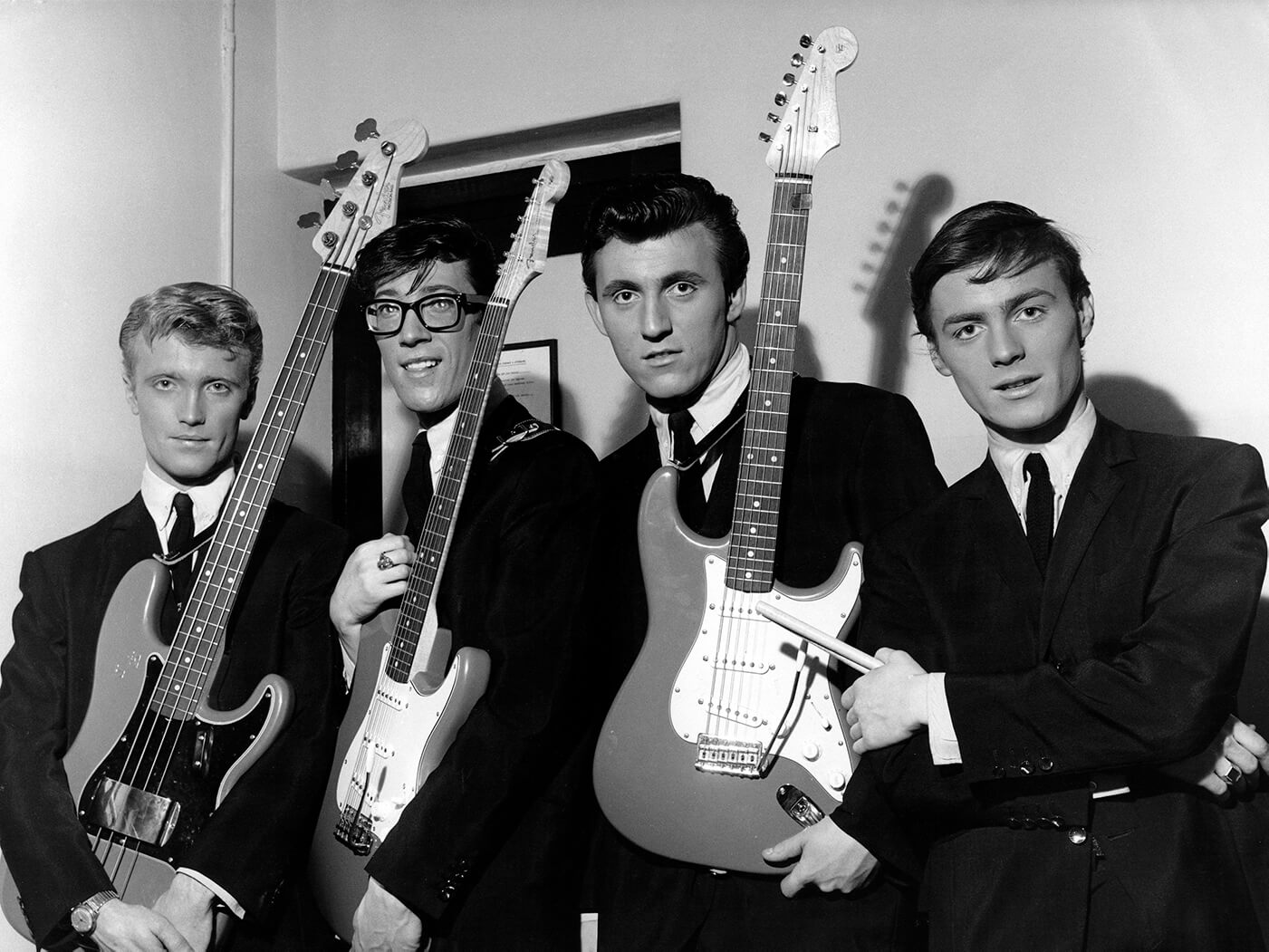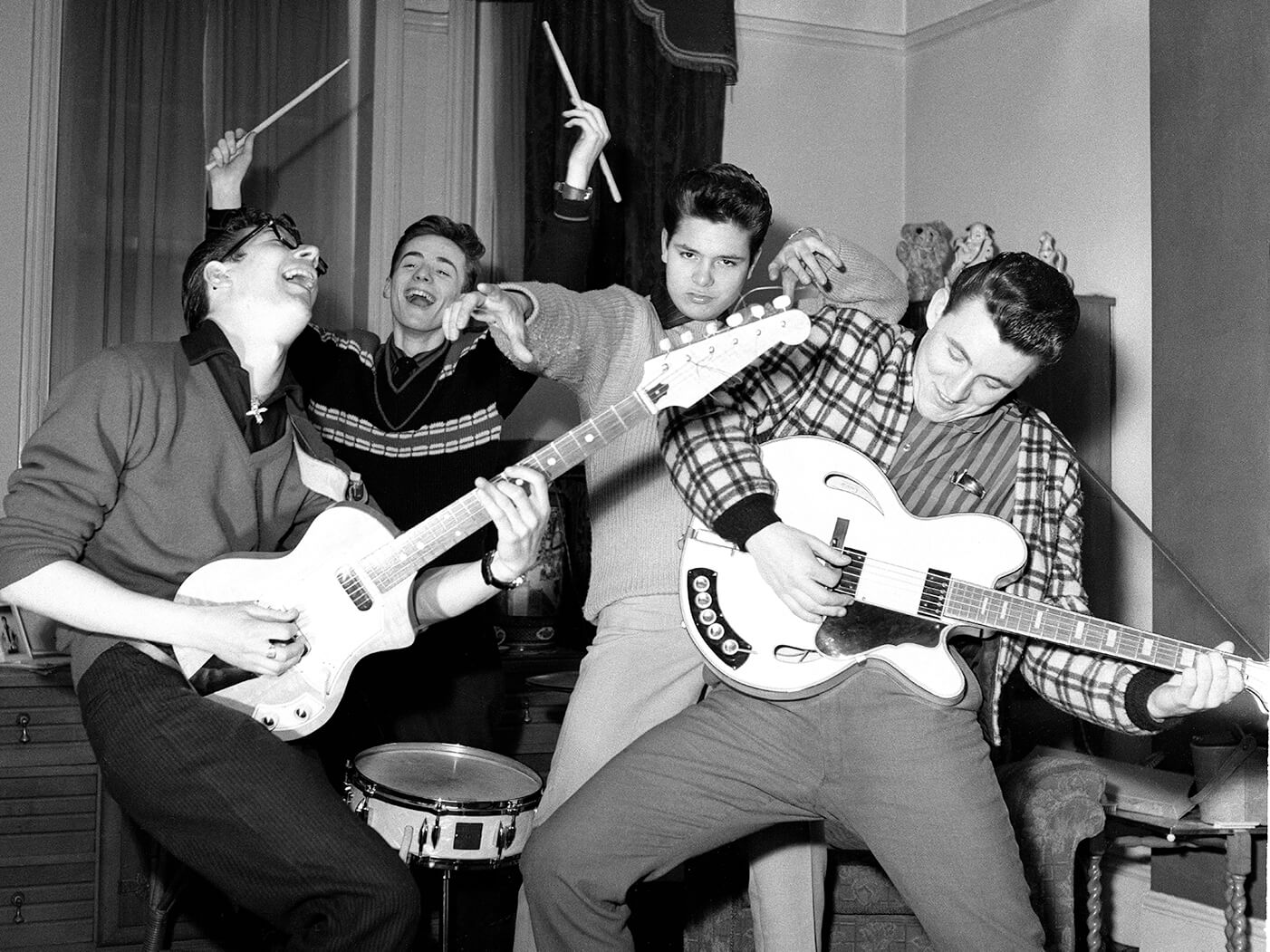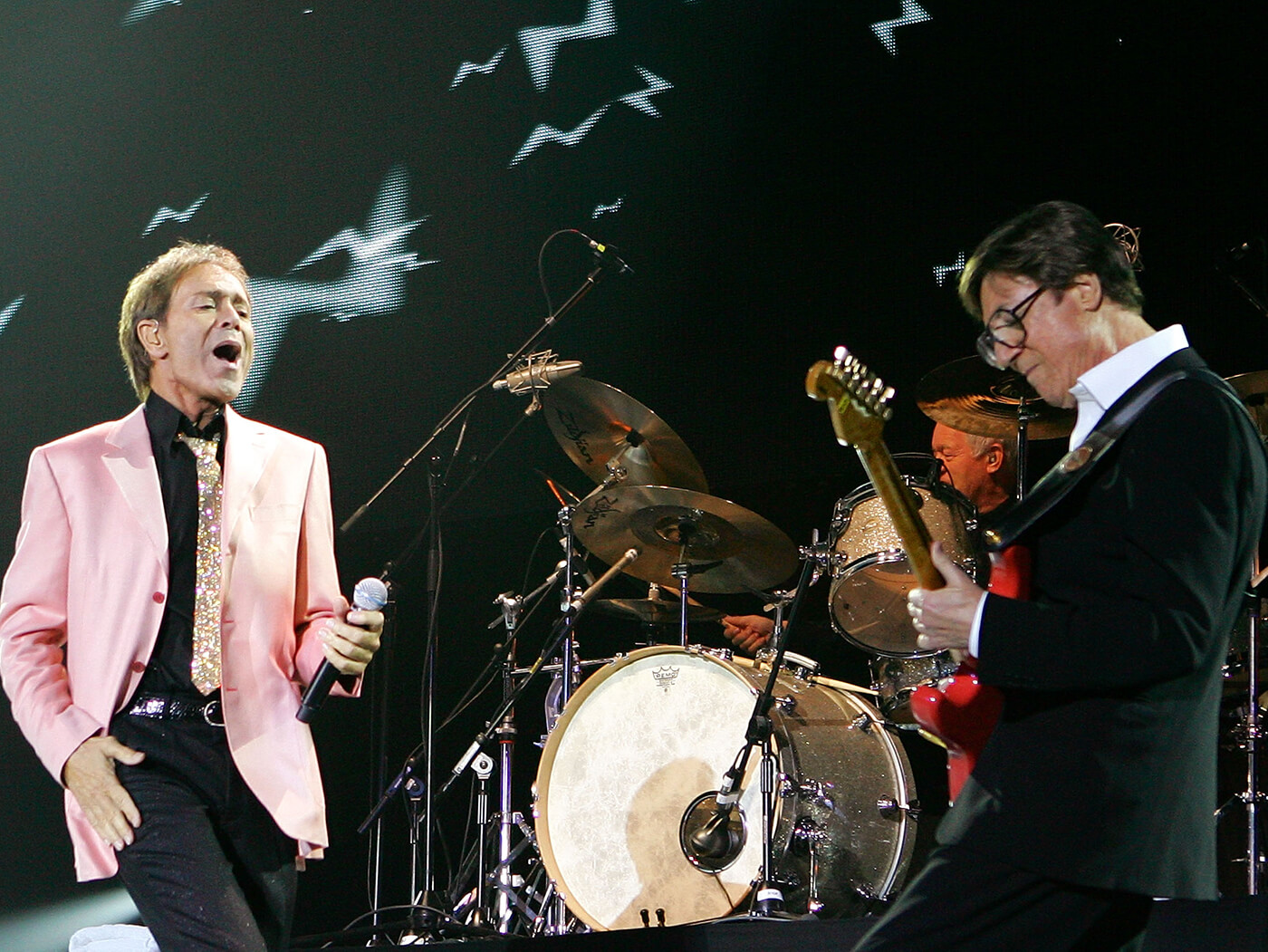Hank Marvin on his career, collaborating with guitar legends and his new album, Gold
As the Shadows legend unveils a brand-new retrospective on his 50-year solo career, we chat to Hank about Strats, collaborations and whether this really is his final album.

Image: Simon Ritter / Redferns
Without Hank Marvin, the electric guitar might have ended up in a very different place. The Shadows guitar player’s lyrical playing style and revolutionary (for the time) gear choice not only became hugely influential on instrumental music in general, but also on successive generations of British guitarists that came after him – not least George Harrison, Eric Clapton, Brian May and Mark Knopfler.
Hank might now be 77 years old, but after 60 years in the business, the now Australian-based Strat-slinger still has a passion for the guitar, which is reflected on Gold – a new compilation album that celebrates 50 years of Hank’s solo career.
Assembled by Hank and his team and revisiting collaborations with everyone from May and Knopfler to Vic Flick and Duane Eddy, it’s a love letter to the golden era of rock ’n’ roll. What better excuse, then, to get the man himself to reflect on his life in music…
“When I started listening to early rock ’n’ roll records in the late 50s, we heard some amazing records coming out of the USA,” Hank tells us, reflecting on what inspired him when he first picked up a guitar all those years ago at the age of 16.
“Scotty Moore with Elvis, Cliff Gallup with Gene Vincent, Buddy Holly, Chuck Berry, James Burton with Ricky Nelson; all those kind of guitar sounds. Particularly, there was a record called The Fool by Sanford Clark with a great guitar riff. I sort of plagiarised that to a degree to come up with a song that Jet Harris and myself wrote for Cliff Richard called She’s Gone.
As the driving force of The Shadows, Hank backed up Cliff for a decade until the group disbanded for two years in 1968, at which point he struck out on his own and released his debut solo album.
“Peter Gormley, who was then our manager, suggested that I record my first solo album, and our producer Norrie Paramor was very happy,” Hank recalls. “Nick Ingman did some arrangements, including one number that was very important to me; a tune called Sacha. It was a huge hit in Australia in 1969, at a time when I couldn’t get arrested in the UK!”
While the single didn’t win over record buyers in the UK, the album itself at least troubled the charts, reaching No. 14 in 1969. Despite this, however, there is one thing about that first solo record that he’d do differently given another go around.
“You know, I have one regret about that album,” he affirms. “I was probably consciously trying to get away from what had been known as ‘my sound’ and on reflection, I wish I had sort of stayed with that original sort of echoey sound. But I didn’t! And you know these things happen at different periods. But hey, that was the way it was at the time, so I mean I don’t lose any sleep over it!”

Swinging 60s
Hank rose to prominence in perhaps the most thrilling and creative period in the history of British guitar music and reflecting on that glorious decade, he can appreciate in hindsight what a special time it was.
“The 60s were very exciting as a guitarist,” he admits. “You know, I just loved the first Bluesbreakers album – I just thought, ‘Wow, this is great!’ When I was 14, I was listening to a lot of ‘folk blues’, which was acoustic – harmonica and acoustic guitar – but I didn’t really hear any of the electric blues stuff. I think I had heard Little Walter’s My Babe and we used to do that sometimes with Cliff.
“But The Bluesbreakers… I loved the heavier guitar sounds! And I found it very exciting when Hendrix came on the scene later – obviously, he had a different approach to it! And bands like Fleetwood Mac with Peter Green – some listeners thought that Albatross was The Shadows! I still think it’s wonderful, a beautiful, classy record, atmospheric and soothing – really good. And then Eric Clapton came on with that heavy overdrive sound…
“I’ve used overdrive sounds on some of my albums and straight away, it’s like a different instrument. Immediately, you start playing differently because you have sustain, for a start! You can hit a target note and hang onto it with much more impact than you can get with a clean sound. So I found that exciting, a wonderful period.”
Golden greats
When putting together the tracklisting for Gold, Hank was keen to reflect the gamut of his long and varied career in a way that didn’t put too much onus on one period or another.
“I tried to balance everything, didn’t want to lump too many new things together, mixing the vocal and instrumental tracks,” he explains. “I’d started out as part of a vocal group based on The Crickets and The Everlys, but in 1959 Jerry Lordan played The Shadows Apache and we loved it, recorded it and it was released and suddenly we were primarily an instrumental band, which was no problem.”
Vocals were a later addition and something Hank didn’t necessarily feel that comfortable with; until he received a ringing endorsement from a musical icon…
“In 1965, we had a hit with a song called Don’t Make My Baby Blue, and George Harrison accosted me at Abbey Road… he was always asking me for money, you know!” he jokes. “So he said: ‘Hey Hank, I love the new record, you really should continue and do more vocals – forget the instrumentals.’’ He was correct, of course and we’ve since recorded vocals on several albums. In 1975, we even came second in The Eurovision Song Contest with Let Me Be The One – despite forgetting the words on the live relay!”
As well as inspiring a generation of guitar players, the 70s also gave Hank the chance to collaborate with other guitarists in a new way, something else he’s keen to celebrate on Gold.
“I wanted to try a 50 Guitars Of Tommy Garrett thing [a series of instrumental albums, featuring the cream of America’s session guitarists – Ed],” Hank reflects. “I’d always had this idea in the back of my mind that it would be very interesting to do something along those lines as a ‘guitar orchestra’.
“And then the opportunity arose with The Hank Marvin Guitar Syndicate – Alan Parker, Vic Flick, Kevin Peek on guitars and Clem Cattini on drums from The Tornados. They were all very, very cooperative – Syndicated and Bird Of Beauty make it to the new album.”

Cultural exchange
Hank might be closely associated with his hugely influential guitar style, but over the decades, he’s embraced a wide variety of genres, not least Gypsy jazz.
“I’ve listened to so many different influences in music,” he affirms. “I listened to some straight-ahead jazz at times and recently, a lot of gypsy jazz-style players and jazz-fusion players. Then there’s also Cuban and Afro-Cuban music – I’ve always liked the idea of putting that together with lots of Gypsy jazz.
“In a similar way, Windmills Of Your Mind – originally from Marvin At The Movies [2000] – is interesting. It’s played on a custom Taylor, as I didn’t have a Gypsy jazz guitar at that time. I’d been listening to some Gypsy jazz, some Django and The Rosenbergs and I thought, ‘Well, maybe it would be interesting to try to do it in that style.’”
Another enjoyable facet of the Gold process for Hank has been the chance to revisit some of his favourite collaborations – and the tracks Wonderful Land and Nivram, which he did with Dire Straits legend Mark Knopfler, are real stand-outs for Hank.
“Mark was an easy guy to work with,” Hank recalls. “We’ve met a few times over the years and I’ve been to see the Dire Straits shows. I found out Mark was a bit of a fan when he said in a magazine that one of his favourite tracks was Atlantis and that it was the best guitar sound he’d ever heard in his life! Eventually, he asked me to guest live on Local Hero… and that’s all I did! Came on the end, got all the applause!
Brian May was another guitarist whose style caught Hank’s ear and the pair’s instrumental take on Queen classic We Are The Champions is a guitar highlight of Gold.
“We thought We Are The Champions would be an ideal vehicle for us, because a lot of guitar work on that, I pretty much play the melody and he can do all the lovely guitar things that go around that,” Hank recalls. “He was very happy to do it and he is a lovely guy to work with. Incredibly loud in the studio! I mean, my goodness, I’ve never heard anyone have the monitors so loud – like the 70s, when everyone was doing that! He kept saying: ‘Can we have it a bit louder, please?’ But he did a lovely job.
“He let me have a go on his Red Special guitar, which was nice. I was quite surprised by the shorter scale and also very light strings, so it’s really easy to get the strings moving and he does a lot of legato work in the left hand; hammering on and pulling off. So it was a very enjoyable experience. We’ve subsequently met a few times in Perth and spent a bit of time together. A lovely guy.”
Roots manoeuvres
Two of the compilation’s collaborations also gave Hank a chance to go back to his roots, both sonically and personally, and he has happy memories of working with Duane Eddy and his former Shadows frontman Sir Cliff Richard.
“Working with Duane Eddy kind of takes you right back to those big guitar hits from the 1950s,” he enthuses. “I remember for Rebel Rouser, we’d already laid down the track for Pipeline and I’d done the high lines, which originally were done on organ. I was going to put the low guitar on myself and was deciding how to approach it, then Duane came out to Brian Bennett’s studio in the UK and just did his business with the track!
“With Cliff Richard tracks, a lot of them just fall together. I simply had to do Move It when I did the Cliff album, but I wanted to do it in a different way to the original. So we came up with an arrangement and we had a second verse that wasn’t in the original, so we thought, ‘Hey, maybe Cliff would like to sing this?’

“Cliff was quite happy that he had another verse to sing, as he said he got fed up with singing the one verse! Cliff’s always been good like that – he just comes along and enjoys it. I tell you, he loves doing his backing vocals and all those harmony lines gave him a big kick.”
Doing a triple-album retrospective does have an air of finality about things, so as we end our chat, we can’t help but wonder whether this may prove to be Hank’s final album. Yet the man himself sees it more as the closing of a very long chapter.
“I don’t know, I’ve never thought specifically in terms of ‘this is the last thing I’ll ever do’,” Hank admits. “You never know what tomorrow brings. We’re just mixing a Gypsy jazz album, but it’s obviously not ‘Stratocaster’ music. So… you never know!”
Gold by Hank Marvin is out now on Crimson.
